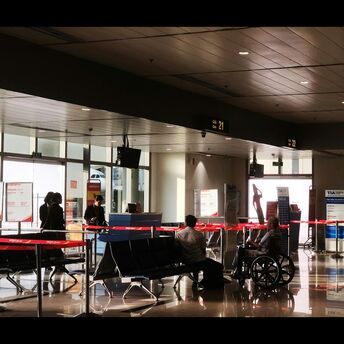Storm Darragh Causes Widespread Disruptions Across Northern England

Storm Darragh has caused major disruptions across northern areas of England, impacting transport and leaving numerous residences without electricity. Northern Powergrid is working diligently to restore energy supplies throughout areas spanning from Teesside to Northumberland, while smaller outages have also been observed in Cumbria. Powerful winds have prompted the closure of the A66 to tall vehicles and interrupted railway operations, with postponements and cancellations confirmed by CrossCountry and other transport providers.
Flood warnings remain active for several northern regions of England and Cumbria, cautioning residents about dangers in flood-prone areas such as the Keswick campsite and waterways, including the Tyne, Wear, and Lower Tees rivers. Although some alerts have been downgraded, intense gusts continue to affect areas like Windermere, where ferry operations remain halted. The A19 Tees Flyover near Middlesbrough has reopened to high-sided and lighter vehicles after previous closures caused by unsafe weather.
For travelers, Storm Darragh emphasizes the importance of preparedness and staying adaptable during challenging weather conditions. Closed roads, electrical outages, and disrupted train schedules underscore the need to monitor real-time alerts and plan alternative routes. Travelers heading to or through affected areas should frequently check weather updates and transportation announcements to ensure safe travel and minimize unexpected complications.
The storm has revealed gaps in current infrastructure that require fortification to endure severe weather more effectively. Recurring power interruptions and transportation delays highlight the necessity of enhanced emergency measures. Travelers depending on these services can benefit significantly from timely updates issued by local authorities and utility providers. Addressing these issues will help ensure safer and more efficient travel during unpredictable weather patterns.
As extreme weather events like Darragh become increasingly common, the travel sector must adapt to growing challenges. Investments in robust infrastructure and more reliable communication networks can alleviate the impact of severe weather. Travelers must remain proactive, secure appropriate travel insurance, and prioritize safety when planning trips. Such strategies ensure more dependable travel experiences and foster resilience in response to the evolving climate crisis.



















